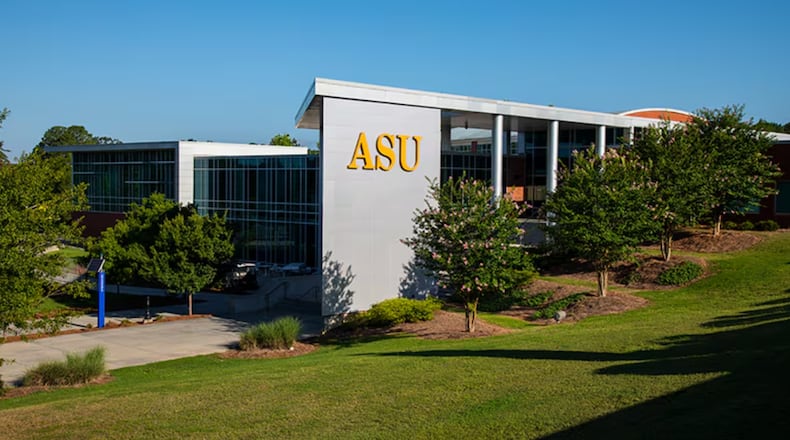I am deeply shaken by the tragic shooting that occurred at my alma mater, Albany State University, during their homecoming weekend. This senseless act of violence left one young life lost and several others injured, casting a pall over what should have been a joyous celebration of community and tradition.
The loss of 19-year-old De’Marion Tayshawn Daniels is heartbreaking; the pain of this loss touches us all, and the ripple effects will likely extend far beyond the immediate tragedy. As an alumnus who experienced the profound impact of 9/11 while on campus more than two decades ago, I fear this incident may similarly redefine the homecoming experience for my beloved ASU community.
Credit: Contributed photo
Credit: Contributed photo
Relatedly, however, this tragic event underscores the critical importance of robust campus safety measures, especially for HBCUs like ours that are often positioned as pillars of refuge and promise in communities often facing significant socioeconomic challenges. As university presidents, we are entrusted with the safety of our institutional ecosystem, which at HBCUs include inextricable responsibilities to both internal and external stakeholders.
This responsibility became visceral for us at Edward Waters University last August when we made international headlines as the original target of a racially motivated mass shooting in our own New Town community, which sits in the heart of Jacksonville’s Black urban core.
In the aftermath, we have made significant strides in enhancing our security infrastructure, thanks in large part to crucial campus fortification funding from the Florida Legislature. In addition to a $1 million grant received from Volunteer Florida, the recent state legislative budget for the fiscal year 2024-2025 allocated $5 million to further strengthen campus security infrastructure on the Edward Waters campus.
As a native Georgian and a two-time graduate of the University System of Georgia who still maintains a permanent residence in southwest Georgia, I urge local, state and federal elected officials to provide similar funding and support to Albany State University and the other HBCUs in the state. The safety of our students is not just an HBCU issue; it is a societal imperative. By working together and providing necessary resources, we can create environments where our young people can thrive without fear.
As we grapple with this tragedy, it is crucial that we come together as a community. To the ASU family, I extend my deepest condolences and unwavering support. As an alumnus, I share in your grief and stand ready to assist in any way possible.
To my fellow HBCU leaders, let this incident renew our commitment to campus safety. We must continue to advocate for the resources necessary to protect our collective campus communities. Our institutions are beacons of hope, inspiration and opportunity. We must ensure their legacies for incubating world-class learning, growth and development remain intact for future generations.
As we move forward, let us honor the memory of those affected by this tragedy by redoubling our efforts to create safe, inclusive and empowering educational spaces. At Edward Waters University, we are grateful for the tremendous support we’ve received, which has allowed us to implement crucial safety measures and support student success.
However, the recent events at our sister HBCU in Albany underscore that our work is far from over. We must remain vigilant and continue to prioritize the safety and well-being of our campuses.
Our students deserve nothing less than our full commitment to their safety and success. Together, we can work toward a future where such tragedies are prevented, and our campuses remain the anchors of sanctuary and citadels of enlightenment they were meant to be.
A. Zachary Faison Jr. is president & CEO of Edward Waters University. An Atlanta Public Schools graduate, he is a graduate of Albany State University and earned his law degree from the University of Georgia School of Law.
About the Author
Keep Reading
The Latest
Featured


